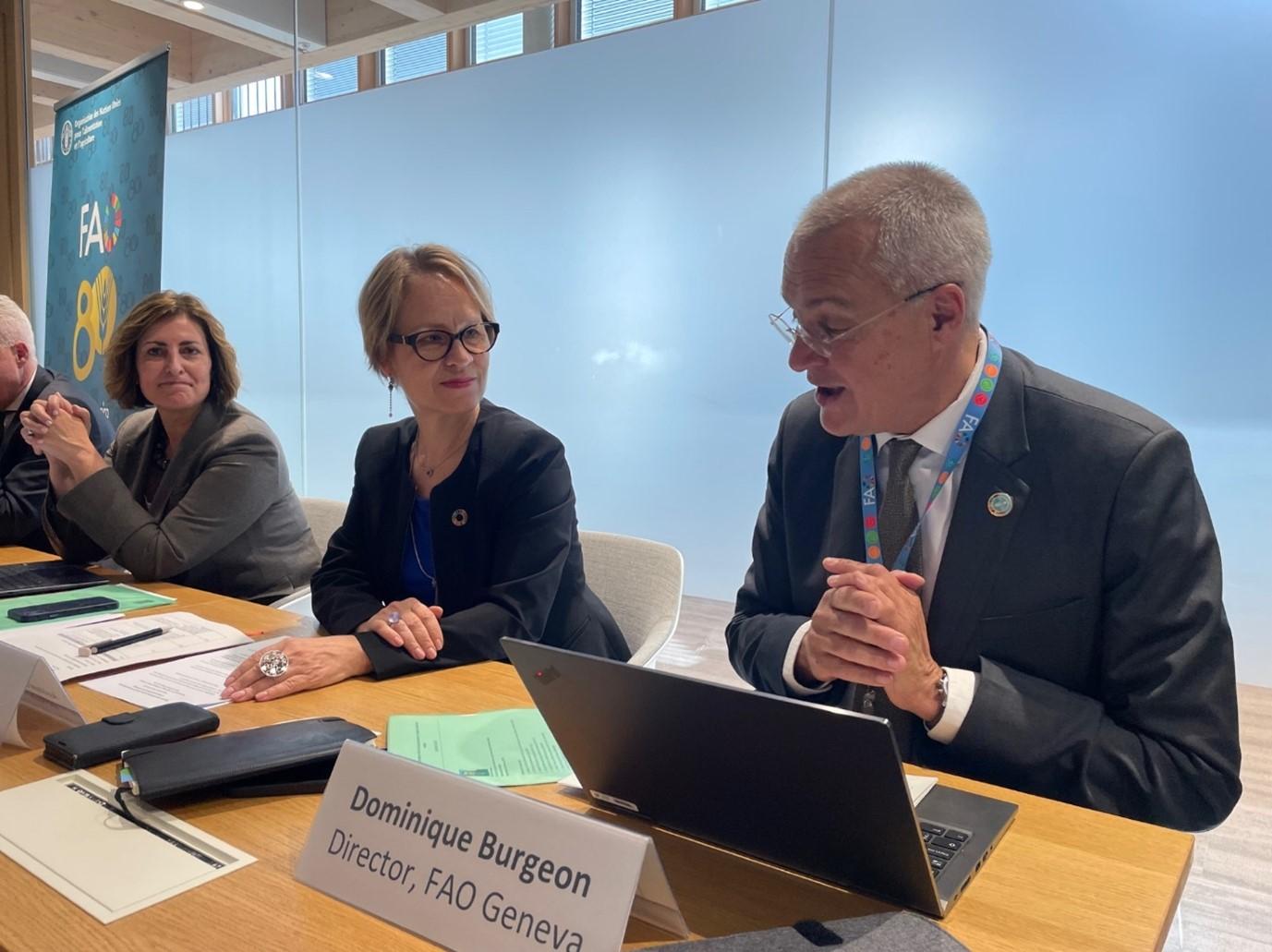A high-level briefing discussed the role of social protection in fragile and food crisis settings and the multilateral initiatives that can help in reducing food insecurity.

Geneva - Globally, 2.33 billion people face some form of food insecurity which the climate crisis is exacerbating. To underscore the central role of social protection in responding to global food insecurity through existing multilateral initiatives, a “Geneva-Level Briefing on the Role of Social Protection in Fragile and Food Crisis Settings” was convened on 30 April. The briefing saw representation from the Food and Agriculture Organization (FAO), and the United Kingdom.
Social protection is widely recognized as a poverty-reduction tool which increases food security by increasing household purchasing power. Multilateral initiatives like the Global Accelerator on Jobs and Social Protection for Just Transitions, Global Alliance Against Hunger and Poverty, and the Global Network Against Food Crises all acknowledge social protection as foundational to their strategies. Among these initiatives, the Global Accelerator stands out for its emphasis on integrated, nationally driven approaches, and strengthening robust, adequately financed social protection systems.
The briefing was a follow up to the High-Level Breakfast on the “Role of Social Protection Supporting Food Security Outcomes in Fragile and Conflict Settings” from October 2024 that marked World Food Day. Andrew Jackson, Ambassador to the UN Economic Agencies, UK emphasized strongly the importance of social protection in facilitating transitions and coping with the multiple crises nations are confronting as many struggle to meet basic needs. “We need to strengthen productivity, build resilience, prepare for climate risks, boost productivity, and avoid reliance on humanitarian aid,” he said, while acknowledging the steep challenges of delivering aid in fragile and conflict-ridden contexts. Setting the context of the scale and complexity of the food crisis, Beth Bechdol, Deputy Director-General, FAO, identified four key barriers that prevented progress on ensuring food security. “There is weak operational capacity in fragile settings, financing is missing, inconsistent, unpredictable and short term, political barriers by untrustworthy counterparts and coordination failures across development actors have changed a seasonal food crisis to the ‘new normal’,” she stated.
The briefing stimulated among the various Geneva Permanent Missions and international organizations a discussion on leveraging the role of social protection in addressing the root causes of chronic food insecurity and to contribute to building awareness of the vision and the contribution of key global initiatives on the topic.
Under the Global Accelerator, several pathfinder countries have prioritized a just transition in a context of climate change, and agrifood system’s transformation, highlighted Mia Seppo, Assistant Director-General, Jobs and Social Protection, ILO. The Global Accelerator helps countries finance integrated approaches to overcome challenges like informality, poverty, and inequality which are rooted in social protection. “It’s not just about financing social protection and decent jobs…It’s about fostering national ownership of reforms, moving countries from short-term fixes to long-term progress, even in fragile contexts,” she said.
Developing countries face the double-burden of high food insecurity due to climate change and people being excluded from social protection systems. The Global Alliance Against Hunger and Poverty is a focussed initiative to overcome the chasm between food security and social protection in the development and aid ecosystem. Fabio Veras Soares, Researcher, International Policy Centre for Inclusive Development, highlighted how the initiative matches knowledge actors and financing actors and governments wanting to implement instruments from the policy basket at scale with each other, to contribute to better and more harmonized dispersion Official Development Assistance (ODA) and other financing flows.
Echoing the need for better alignment as initiatives rise and, Leonard Mizzi from the European Commission, identified three priorities for moving forward:
- Strengthen institutional capacity and streamline operations across ministries, including Ministry of Finance
- Be more impact oriented
- Mobilize innovative financing and climate finance, including tapping into World Bank, IFC financing for agrifood investments
The discussion underscored a clear consensus: to effectively respond to today’s food crises and build resilience for tomorrow, there has to be improved coordination, aligning of investments, and deepening of partnerships. Stronger, more agile social protection systems can serve as both a buffer in emergencies and a bridge to sustainable development.